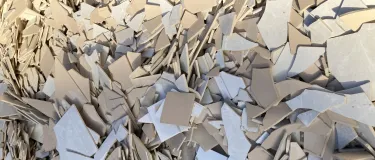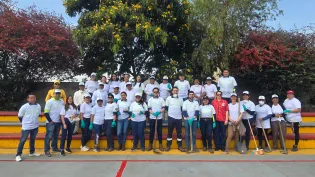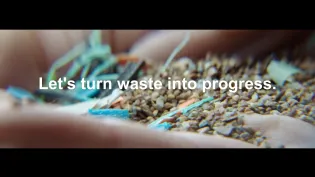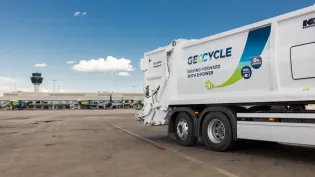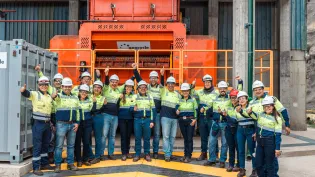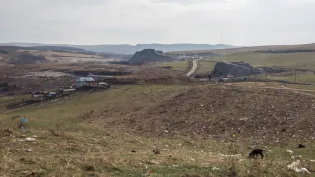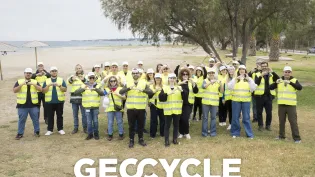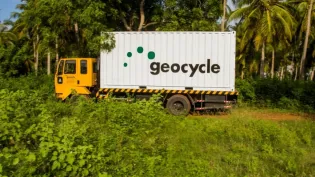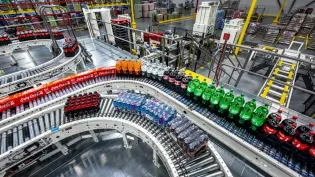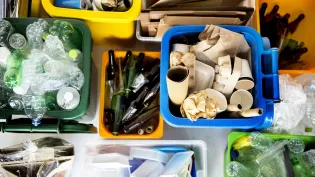Giving discarded tiles a second life
When faced with the disposal of a stockpile of tiles, UK ceramic manufacturer Johnson Tiles teamed up with Geocycle to transform it into resources.
Our waste solutions re-purposed thousands of tons of waste ceramics into construction materials to support Johnson Tiles’ sustainability and environmental targets.
The challenges of ceramic disposal
Ceramics and tiles are all around us – in homes, offices and public buildings. They are used to make everything from roofing tiles to kitchen sinks, tableware and household decorations. But they are not easy to dispose of sustainably.
At the end of their life, tiles are usually either turned into rubble to use to build roads, stockpiled or sent to landfills. Each disposal solution is costly and can be a time-consuming waste of resources for businesses.
As Johnson Tiles’ stock of tiles grew, so did the need to find a sustainable solution to manage its ceramic waste.
Preserving raw materials with recycled tiles
The goal of this four-year partnership is to recycle and recover 20,000 tonnes of waste ceramics every year – 80,000 tonnes in total.
The tiles take a short trip from Stoke to Geocycle’s Cauldon plant in the Staffordshire Moorlands to be transformed into an alternative raw material. Once the tiles are received, our team of experts conducts a thorough pre-qualification process to ensure their responsible management.
The tiles are checked for contamination before being blended with other raw materials – including limestone – to create a homogenous blend for cement manufacturing.
This then serves as an alternative to quarried materials, such as shale, reducing dependency on natural resources. This economic and sustainable solution helps Johnson Tiles focus on its business and clears its land for alternative use, such as solar panel installations and buildings.
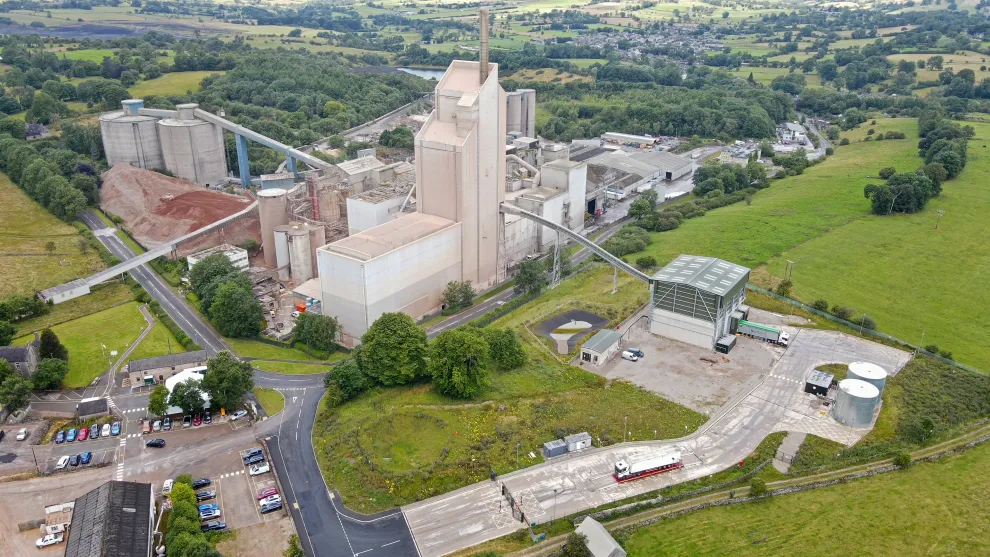
An economic solution for ceramic recovery
“It’s wonderful to see waste from one industry replacing a virgin raw material in another,” says Jason Bridges, Procurement and Production Director at Johnson Tiles. “This fits with our own ambitions to reduce our environmental impact and close the loop on process waste.”
By recovering these materials, we minimize the amount of waste sent to landfills, limit quarrying and preserve natural resources.
“This is the perfect example of industrial symbiosis and we’re delighted to be collaborating with Johnson Tiles,” says Andrew Whyatt, Geocycle UK Manager. “Ceramic waste lends itself well to being recycled into new raw materials thanks to its chemical makeup. And the sky is the limit – this applies not only to tiles but sinks, plates and more.”
By furthering cross-industry collaboration, we can tackle industrial waste sustainably and drive a more circular economy.

“Ceramic waste lends itself well to being recycled into new raw materials thanks to its chemical makeup. And the sky is the limit – this applies not only to tiles but sinks, plates and more.”



